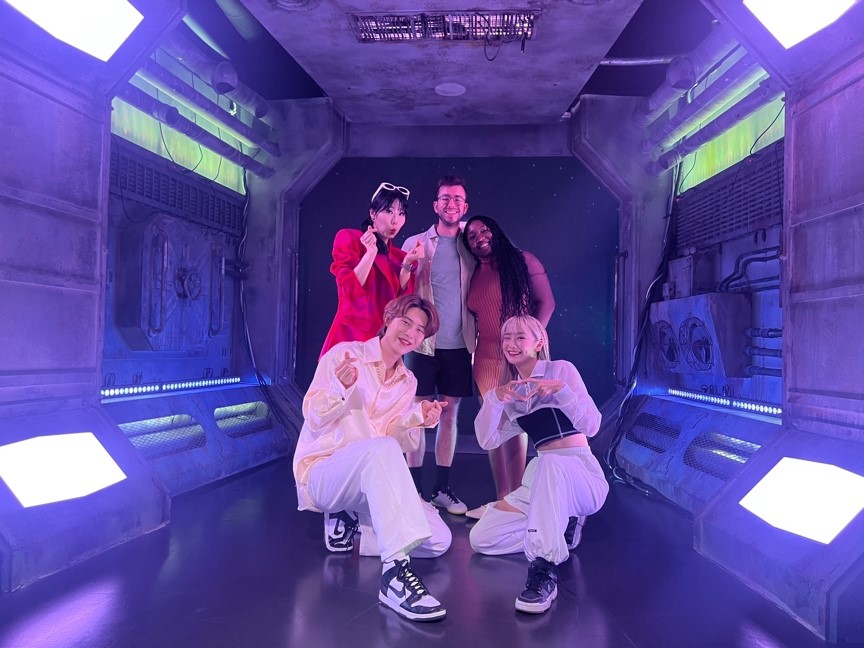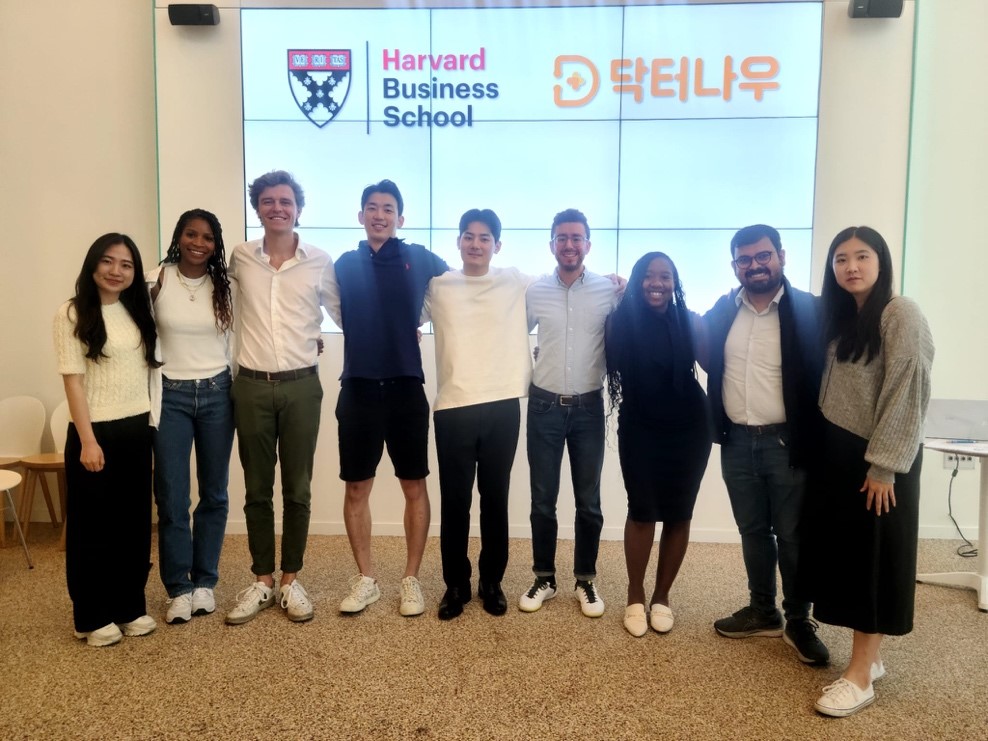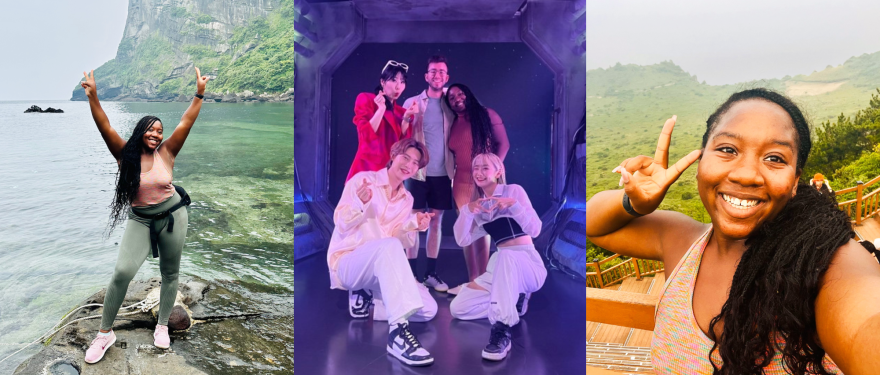In early May, I embarked on a journey to Seoul, South Korea, accompanied by 70 fellow Harvard Business School classmates. Our purpose? To culminate our first-year studies through the FIELD Global Immersion program. Throughout this transformative experience, I collaborated closely with five diverse peers to support our project sponsor, DoctorNow, a Korean telehealth start-up. In the weeks leading up to our Seoul adventure, we diligently forged a solid working relationship, delved into comprehensive research of the company and the South Korean context, and honed our skills in design thinking principles. As we touched down in Seoul, we were fully prepared to hit the ground running, poised to maximize the value of our ten days together.
Reflecting on my time in Seoul, a few key lessons resonate:
1. First-hand exploration is the best way to understand a new culture
From dozens of customer interviews, delicious food tours around the city, walks through Seoul’s many historical sites, to embracing the beauty scene through facials, spa days, and trips to Olive Young, I intentionally immersed myself in all that Seoul had to offer. What I loved most about Seoul is how beautifully the old and new co-exist. Walking distance from our hotel was the Dongdaemun Design Plaza featuring neo-futurism architecture juxtaposed right next to the city’s ancient walls, dating back to the 14th century. I was constantly seeing a glimpse of the future while simultaneously being reminded of the city’s rich history.
The most unexpected insight I gained from speaking with South Koreans was how pleased everyone was with their governmental services. Healthcare is largely government funded, high quality, and quick – with most people receiving care and medication in less than an hour. Additionally, the government provides tons of support for its elderly population and has the most efficient, clean, and orderly public transit system I’ve ever witnessed. Care, community, and culture are deeply engrained into the fabric of South Korea. These first-hand learnings were critical to the work we did with DoctorNow.

2. Teamwork requires work
Initially, I thought teamwork would be intuitive, especially for a group of accomplished HBS students; but teamwork takes work! As such, my team and I were intentional about getting to know each other on a personal level. Great teams balance the hard skills required to produce quality work and the soft skills necessary for effective interpersonal relationships. Understanding each other’s working styles, strengths and weaknesses helped us work better as a unit.
3. Kindness is universal
We spent countless hours interviewing the locals across Seoul. Initially, it was a bit intimidating for interviewees to be approached by a group of foreigners and asked to share their personal healthcare experiences. To make these conversations easier, I began each interaction with a smile, gesture of kindness, or compliment. Despite the language barriers, my sincerity and warmth were always felt and allowed people to be vulnerable. It's important to lead with kindness!

4. Relationship building at HBS never stops
Until FIELD, most of our time at HBS was spent with our respective sections. This was the first time, in a formal setting, where we had the opportunity to have a curated, shared experience with other classmates. Nearly nine months into HBS, I found myself meeting new people and developing new friendships. I realized the beauty of HBS is that relationship building continues forever and I now have a new community… Section Seoul!
5. Above all else, always prioritize impact
After ten days in Seoul, my team and I proposed a new product feature to attract new customers to the DoctorNow platform. We ended the week with a presentation highlighting our design thinking process, sharing insights gained from customer interviews and providing a deep dive into our proposed solution. Most importantly, we offered a fresh perspective for the startup and challenged leadership to think outside of the box. Our impact was felt throughout the entire organization, and I am excited to see how DoctorNow continues to disrupt the Korean healthcare system.

